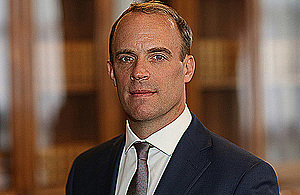New pharmacy referral service to help patients avoid hospital readmission
From July, hospitals will be able to refer patients who would benefit from extra guidance around new prescribed medicines to their community pharmacy.
Patients will be digitally referred to their pharmacy after discharge from hospital.
The NHS Discharge Medicines Service will help patients get the maximum benefits from new medicines they’ve been prescribed by giving them the opportunity to ask questions to pharmacists and ensuring any concerns are identified as early as possible.
This is part of the Health Secretary’s ‘Pharmacy First’ approach to ease wider pressures on A&Es and General Practice.
A recent audit of NHS hospital discharges showed that 79% of patients were prescribed at least one new medication after being discharged from hospital.
New prescriptions can sometimes cause side effects, or interact with existing treatments, potentially leading to readmission.
Research by the National Institute for Health Research (NIHR) shows that people over 65 are less likely to be readmitted to hospital if they’re given help with their medication after discharge.
Previous local schemes around the country have demonstrated that patients who see their community pharmacist after they’ve been in hospital are less likely to be readmitted and will experience a shorter stay if they are.
The NHS Discharge Medicines Service is part of a number of measures being introduced as part of the second year of the 5-year Community Pharmacy Contractual Framework.
The framework was agreed in July 2019 with NHS England and NHS Improvement and the Pharmaceutical Services Negotiating Committee (PSNC). It committed almost £13 billion to community pharmacy – £2.592 billion per year – to expand the role of community pharmacy, while continuing to support the introduction of new clinical services.
The NHS Discharge Medicines Service is an example of work taking place to provide local healthcare, particularly during winter, to help people stay well in their communities and avoid unnecessary trips to hospital, freeing up beds and resources.
Another example is the Community Pharmacist Consultation Service, which referred over 176,000 patients with minor illnesses or urgent medication needs to a pharmacist for a booked consultation through NHS111 in its first 16 weeks.
The new service will help meet the World Health Organization’s (WHO) goal to reduce severe avoidable harm from medicines by 50% by 2022.
Health and Social Care Secretary Matt Hancock said:
I want all patients to get the right care close to home, and to avoid any unnecessary visits to hospital. To help do that I’ve begun the Pharmacy First programme, asking pharmacies to do more to support people in the community, as they do in other countries like France. It’s good for patients and great for the NHS because it reduces pressure on GPs and hospitals.
These new services will help strengthen what community pharmacists can do, helping interrelation with General Practice and hospitals, and help them deliver safer, more efficient patient care right across the NHS.
This new contract bolsters the enhanced role highly-skilled pharmacists are playing in preventing ill health and helping us to stay well in our communities.
Bruce Warner, NHS England deputy chief pharmaceutical officer, said:
Preventing ill health is a key part of the NHS Long Term Plan and over the next year we will introduce the new Discharge Medicines Service to help people most in need of support with their medication, as well as begin to test a variety of new measures to identify people with undiagnosed conditions.
This will make even better use of the valuable and extensive clinical skills of community pharmacists so that people can ‘walk in’ and get the health advice and help they need, providing an excellent foundation on which we can build for the future.
